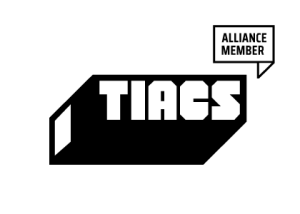What are the conditions of a franchise agreement?
Purchasing a franchise is a big decision. Not only is it a significant financial commitment, it’s also a long-term time and energy commitment. That’s why it’s important to do your research and to examine your franchise agreement in detail before you sign on the dotted line.
Franchise agreements are critical documents that set the stage for the type of relationship you have with your franchisor. In this post, we’ll outline some of the basic elements of a franchise agreement, as well as some of the details you should be looking out for as a potential franchise owner.
What is a franchise agreement?
The importance of franchise agreements can’t be understated. Franchise agreements are legally binding documents that set the parameters of a franchising relationship. Simply put, a franchise agreement is a master document that outlines in detail the terms of the franchising relationship that both the franchisor and franchisee have agreed upon. Under the Franchising Code of Conduct, every franchisor in Australia is legally required to present a franchise agreement to a potential franchisee.

Every franchise agreement is different, but the type of information you’ll typically find in this document include:
- Fee structure;
- Key terms of the business;
- Licence grants;
- Grounds for termination;
- Franchisee obligations;
- Franchisor obligations;
- Business procedures and rules;
- Dispute resolution procedures.
Ultimately, franchise agreements serve to protect both the franchisor and the franchisee. By clearly setting out the obligations of both parties, franchise agreements exist to prevent disputes from occurring later down the track.
We always recommend doing your due diligence prior to signing any legally binding document. And since no two franchise agreements are exactly the same, it’s always wise to get a lawyer to review a franchise agreement prior to signing.
What are the three types of franchise agreements?
Franchising is a highly flexible business model that allows for plenty of variation and modification. In Australia, the three most common types of franchise agreements are single-unit franchise agreements, multi-unit franchise agreements, and master franchise agreements.
As a result of the variable nature of franchise agreements, you should always seek out a professional legal opinion of a franchise agreement before you sign it. Remember, your franchise agreement is a legally binding document that sets the tone for how your relationship with your franchisor is going to be moving forwards, so it’s definitely something that you want to get right.

Are franchise agreements negotiable?
Unfortunately, franchising laws don’t prevent franchisors from presenting franchise agreements that protect their own interests over their franchisee’s interests. That means that there are many dodgy franchise agreements out there that are very much skewed towards the franchisor’s interests.
The good news is that prospective franchisees have every right to negotiate the terms of their franchise agreement. The only catch is that the franchisor has no obligation to agree to any of the terms.
With that being said, if you don’t feel 100% about any of the terms set out in your franchise agreement, you should absolutely negotiate those terms with your franchisor. And if your franchisor is not receptive to negotiations, then you have every right to walk away. At the end of the day, you’re signing on to start a business, which is a significant undertaking and commitment. So, you definitely don’t want to enter into a one-sided agreement that will bring you grief later on.
Some of the questions you should be asking your franchisor prior to signing the agreement include:
- What kind of support can I expect to receive from my franchisor? – E.g. training, marketing support, branding.
- What fees or royalties will I be required to pay? Are these fees fixed or calculated as a percentage?
- Am I able to sell the franchise in the future? On what grounds can the franchise agreement be terminated?
- Is there an option to transfer a franchise?

Ultimately, it’s your responsibility to ensure that you’re 100% happy and comfortable with all the terms set out in your franchise agreement prior to signing it. Franchise agreements are legal documents, which means that they usually can’t be amended or modified after they have been signed (unless, of course, the agreement allows for further changes). This means that if you sign an agreement with unfavourable terms, you’ll be held fully accountable to those terms, with no option to make further changes. That’s why it’s important to get the franchise agreement right from the start, so that you’re set up for success from day one.
One of the clear benefits of signing up for a Jim’s Group franchise is that our franchise systems have been tried and tested by thousands of business owners Australia-wide. After all, there’s a reason why we’re the fastest growing franchising family in Australia. Our franchising philosophy puts our franchisees at the centre of everything we do, so you can be sure that you’ll have the support of the Group from the very beginning of your business journey.
If you’d like to find out more information about local franchises available in your area, get in touch with us on 131 546 or enquire online today.
Related Jim’s Group News
– How Do You Become a Master Franchise?
– How to Promote Your Business in Your Local Community?
– The Great Resignation
– What are the Pros of Owning a Franchise?
– What is a Franchise?
– What is Franchise Economics?





